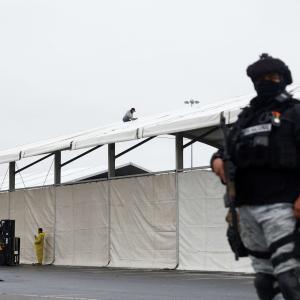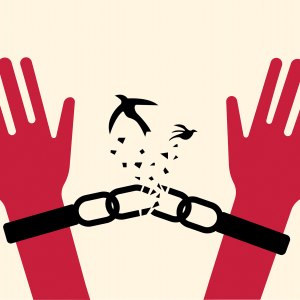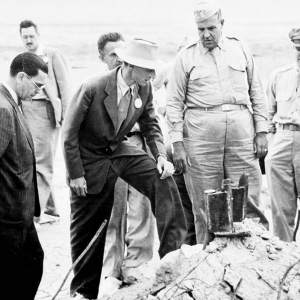
Dwayne David Paul is the co-founder of Religion in Revolt, a digital platform that aims to develop and promote the liberation work of faith communities.
Posts By This Author
If We Want to Save Democracy, We Must Oppose Mass Deportations
Democratic Party leadership presented the 2024 presidential election as a choice between Donald Trump and democracy. That messaging seemed not to resonate with the majority of voters as Trump is now president. Despite his extreme policy stances, Trump captured nearly two-thirds of the Christian vote. Trump and his ilk will accelerate the nation’s lurch toward authoritarianism, Christian nationalism, and fewer rights for already marginalized communities. The campaign promises of then-candidate Trump — many of them already being enacted — will devastate millions.
Social Mysticism Can Help Us Encounter the Divine
God is waiting for us to experience the presence of the Spirit through the work of community organizing.
GOD SEIZED ISABELLA on Pentecost 1826. Isabella Baumfree, born in slaveholding New York, had secured her freedom. But, in despair for her children, she “looked back into Egypt.” On the verge of returning herself to slavery, God’s spirit overtook her in a mystical encounter that changed her life.
This thunderclap of God’s grandeur surpassed any notions of the divine she had previously acquired. This God, at once familiar and foreign, called Isabella to abandon the faith of her owners. But God also called her to transform the faith inherited from her mother, who taught that survival consisted of equal parts prayer and submission to enslavement. As Isabella recovered from this mystical encounter her only words were, “Oh, God, I did not know you were so big.”
Seventeen years later, Isabella had another mystical experience. After having been swindled out of her savings, she struggled to rebuild financial stability in New York City. She asked herself why, “for all her unwearied labors,” did she have nothing to show? Why did others, with much less work and anxiety, “hoard up treasures for themselves and children”? As she reflected on the economic hardship she witnessed, she realized, “the rich rob the poor and the poor rob one another.” With this insight, the political roots of her religious transformation took hold. From that time forward she claimed a new name: Sojourner Truth. And began her career as a traveling preacher and activist.
Yep, Prison Labor Sounds a Lot Like Slavery.
Christians would do well to reject the premise that there are throwaway people.
I HAD A conversation recently about an essay I’d written on prison labor in the United States. My colleague was shocked. Well into the 21st century, she mused, isn’t that a phenomenon reserved for totalitarian regimes on the other side of the planet?
It’s a reasonable assumption. After all, it sounds an awful lot like slavery.
The U.S. never abolished enslavement; we only regulated it. In 1865, the 13th Amendment to the Constitution ended legalized chattel slavery and involuntary servitude, except “as a punishment for crime whereof the party shall have been duly convicted.” This proviso, known as the “exceptions clause,” has served to obscure the continuation of an American slave system from the end of the Civil War to the present day.
Convict-leasing schemes were integral to rebuilding the South from the ashes of total war. Incarcerated labor fueled the postwar Industrial Revolution. And today, approximately 800,000 of the country’s nearly two million incarcerated people work for a pittance (on average, less than a dollar an hour) with varying degrees of willingness. If U.S. prisons and jails were to form that workforce into a conglomerate, they would be the nation’s third largest private employer, behind only Walmart and Amazon.
Where Oppenheimer and Pope Francis Agree
Given the renewed attention to the danger of nuclear weapons — thanks, in part, to Oppenheimer — recent developments in Catholic theology regarding the immorality of nuclear arms provide a timely pretext to engage in interdenominational advocacy at the federal level, as well as political and theological education within church communities. We are at one of the most dangerous junctures in decades.
Cis Christians Don’t Need to Understand Trans People to Care for Them
In short, the gospel demands that the church asks some basic sociological questions to help it navigate difficult social waters. In regard to trans people, our questions should be informed by the work of people like organizer and writer Dean Spade, who wrote the book Normal Life. How does our society, with all its norms, move trans people closer to vulnerability and death, or closer toward security and life?




